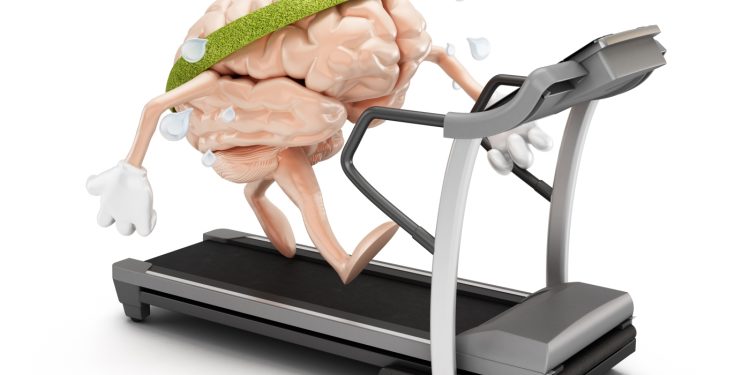A new study finds that cognitive training can increase levels of a key chemical messenger in the brain responsible for decision-making and reverse a process associated with aging.
aventtr/iStockphoto/Getty Images
hide caption
toggle caption
aventtr/iStockphoto/Getty Images
Scientists report the first compelling evidence in humans that cognitive training can increase levels of a brain chemical that typically decline with age.
A 10-week study of people 65 or older found that doing rigorous mental exercises for 30 minutes a day increased levels of acetylcholine, a chemical messenger, by 2.3% in an area of the brain involved in attention and memory.

The increase “is not huge”, estimates Étienne de Villers-Sidani, neurologist at McGill University in Montreal. “But it’s significant, given that you normally get a 2.5 percent decline per decade with aging alone.”
So, at least in this area of the brain, cognitive training appears to turn back time by about 10 years.
The chemical change observed after intensive brain training is compelling, says Michael Hasselmo, director of the Center for Systems Neuroscience at Boston University, who was not involved in the study.
“It was so convincing that I thought, ‘Maybe I should do that,’” he says.
This result supports previous animal research showing that environments that stimulate the brain can increase levels of certain neurotransmitters. Studies of people suggest that cognitive training can improve thinking and memory.
Never skip brain day
The study, funded by the National Institutes of Health, comes amid a proliferation of online brain training programs, including Lumosity, Elevate, Peak, CogniFit and BrainHQ.
But it’s difficult to know whether these programs actually work, says de Villers-Sidani, who directs the cognitive disorders clinic at the Montreal Neurological Institute at McGill.
“They had a positive impact on some cognitive measures,” he says, “but then the question was, how much does it change the brain and how does it change the brain?”
So de Villers-Sidani and a team of researchers decided to see if mental exercise could increase levels of acetylcholine, a neurotransmitter closely associated with cognitive performance.
Acetylcholine levels generally begin to gradually decline around middle age. Levels, however, drop sharply in people with Alzheimer’s disease.
The team studied 92 healthy people aged 65 or older.

Half of the participants spent 30 minutes a day playing computer games like solitaire and Candy Crush.
The others spent the same amount of time each day doing cognitive exercises that are part of the scientifically tested BrainHQ program. The program challenges users to remember the type and location of items that appear and disappear at increasing speed.
“It’s really focused on attention and processing speed, and it kind of pushes you to the limit,” says de Villers-Sidani.
The researchers used a special type of PET scan to detect changes in acetylcholine levels in the anterior cingulate cortex, a brain region important for making decisions and detecting errors.
“I wasn’t sure we would find anything, to be honest,” says de Villers-Sidani.

But they did it. In people who played games like solitaire, acetylcholine levels remained unchanged. But among people who underwent cognitive training, there was a significant increase.
Acetylcholine levels also increased in other areas of the brain, including the hippocampus, which plays a key role in memory.
Even modest changes are significant, Hasselmo says, because acetylcholine does more than transmit messages to the brain. It also modulates the behavior of neurons in ways that affect learning, memory and attention.
So when a person takes, for example, a high dose of the motion sickness drug scopolamine – which blocks the effects of acetylcholine – things start to go wrong.
“If you block the neuromodulatory function of the brain, a person can’t even think,” says Hasselmo. “You enter a state of delirium.”
On the other hand, even small increases in acetylcholine can have a “profound and noticeable effect” on memory and thinking in older adults.
Hasselmo notes that early Alzheimer’s drugs reduced symptoms by increasing acetylcholine levels. Today, he says, intensive brain training has the potential to achieve similar gains and stave off cognitive decline.









